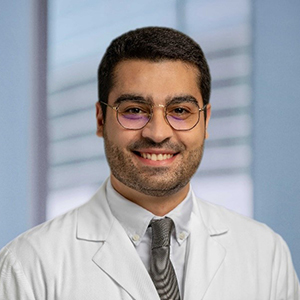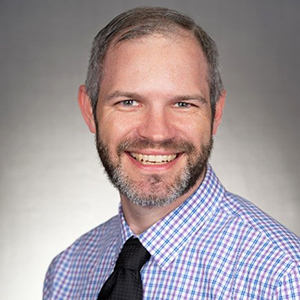Texas ACC Chapter’s FIT Success as Big as the Lone Star State: Part I

Joe Aoun, MD
Welcome back to our series on ACC chapter engagement for FITs! The intent of this series is to encourage FITs to actively engage in their state's ACC chapter. Interviews with select state chapters are conducted to glean their experiences and share with readers. I reached out to multiple chapters inviting them to highlight their efforts and got a quick response from the Texas ACC chapter's FIT catalysts, Joe Aoun, MD, and Travis, Haneke, MD.
Texas, the Lone Star State, is not only one of the biggest states in the country, but it is also a hot bed of prominent and world-renowned medical centers, especially for cardiology. With over 17 major cardiology centers and 2,084 cardiologists (including FITs) in practice, the Texas ACC chapter is very busy.
Tell me about the Texas ACC chapter and its history.
The Texas ACC chapter was incepted in 1968, making it one of the oldest ACC chapters. It has expanded significantly over the years and currently incorporates 22 sections, including multiple cardiac sub-specialties such as Women in Cardiology, International, Early Careers, as well as an FIT Section that we co-chair. There is great representation from all over Texas in the chapter, with several past chapter presidents and committee chairs from different areas of subspecialty training and institutions within Texas.

Travis Haneke, MD
The chapter mirrors the national ACC in engaging FITs early on and granting them roles in events and leadership positions. Furthermore, the leadership has worked significantly on improving the involvement of FITs in local and national ACC. For example, there is a dedicated fund to sponsor FITs presenting at ACC Scientific Sessions.
What are your group's recent activities, contributions, functions, that you would like to highlight?
Over the past year, despite all the challenges with COVID, we were able to organize several educational programs for the state and section meetings. We have also directed some of the efforts towards social media to increase involvement in the chapter and attendance to the local meetings.
The Texas FIT Jeopardy is a yearly competition, where more than 10-11 teams from different cardiology programs in Texas compete to test their medical knowledge. We are very proud of the Texas FIT Jeopardy team winners that have consistently been among the top teams in the national final tournament.
Our chapter has also collaborated with other associations, such as the Texas Medical Association, and worked closely on state level advocacy and legislative matters.
How does the chapter engage its members?
Several of our meetings with the leadership group were dedicated to this mission of engaging members. As a result, the chapter allocates a stipend for 20 FITs to sponsor their trip to the ACC Scientific Sessions. Our annual state meetings are centered around educational opportunities for FITs, such as presentations and abstracts. This past year, most of the oral cases were presented by FITs.
Moreover, FITs can participate in writing articles on a variety of topics, including Women in Cardiology, Electrophysiology and Heart Failure. To accomplish this, the FITs are paired up with senior faculty to get some guidance and supervision.
To read part two of this interview, click here.
This article was authored by Megan Pelter, MD, an FIT at Scripps Clinic and Southern California ACC FIT chair. Twitter: @MeganPelter
This content was developed independently from the content developed for ACC.org. This content was not reviewed by the American College of Cardiology (ACC) for medical accuracy and the content is provided on an "as is" basis. Inclusion on ACC.org does not constitute a guarantee or endorsement by the ACC and ACC makes no warranty that the content is accurate, complete or error-free. The content is not a substitute for personalized medical advice and is not intended to be used as the sole basis for making individualized medical or health-related decisions. Statements or opinions expressed in this content reflect the views of the authors and do not reflect the official policy of ACC.